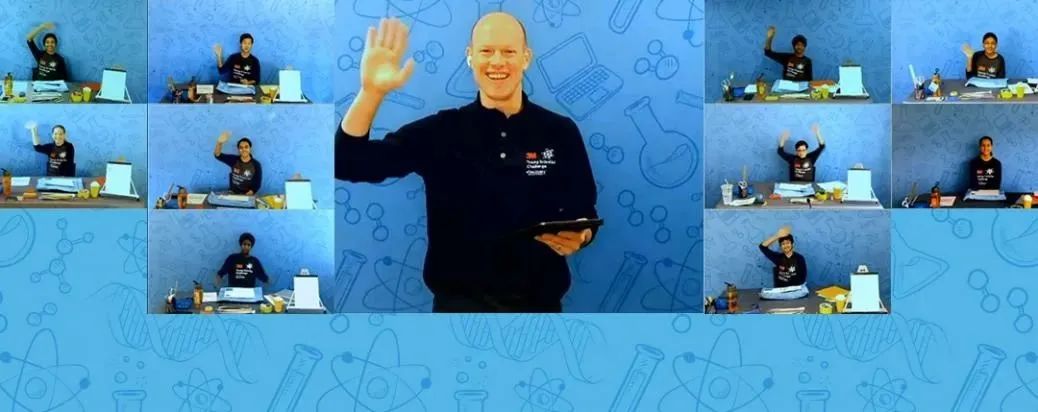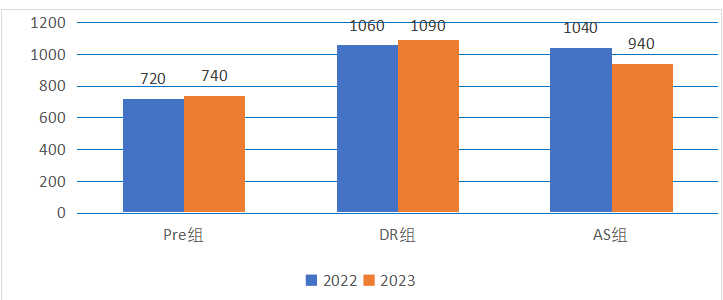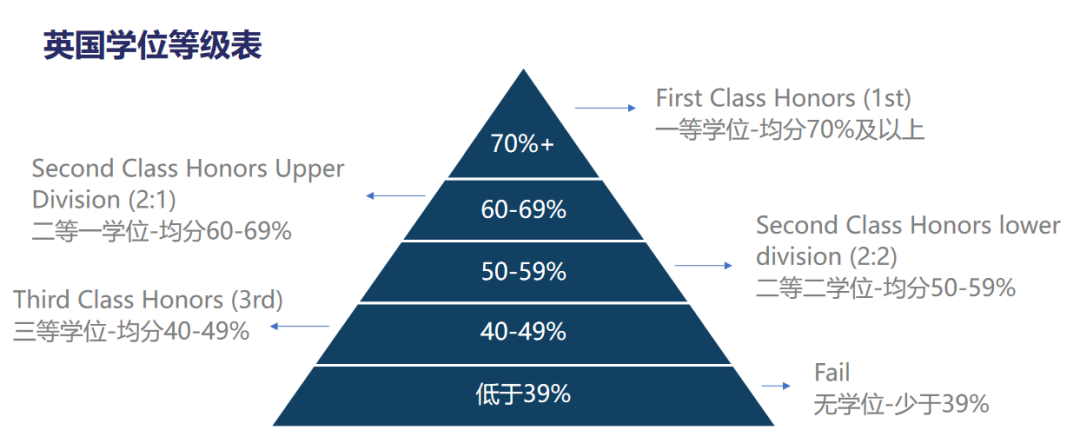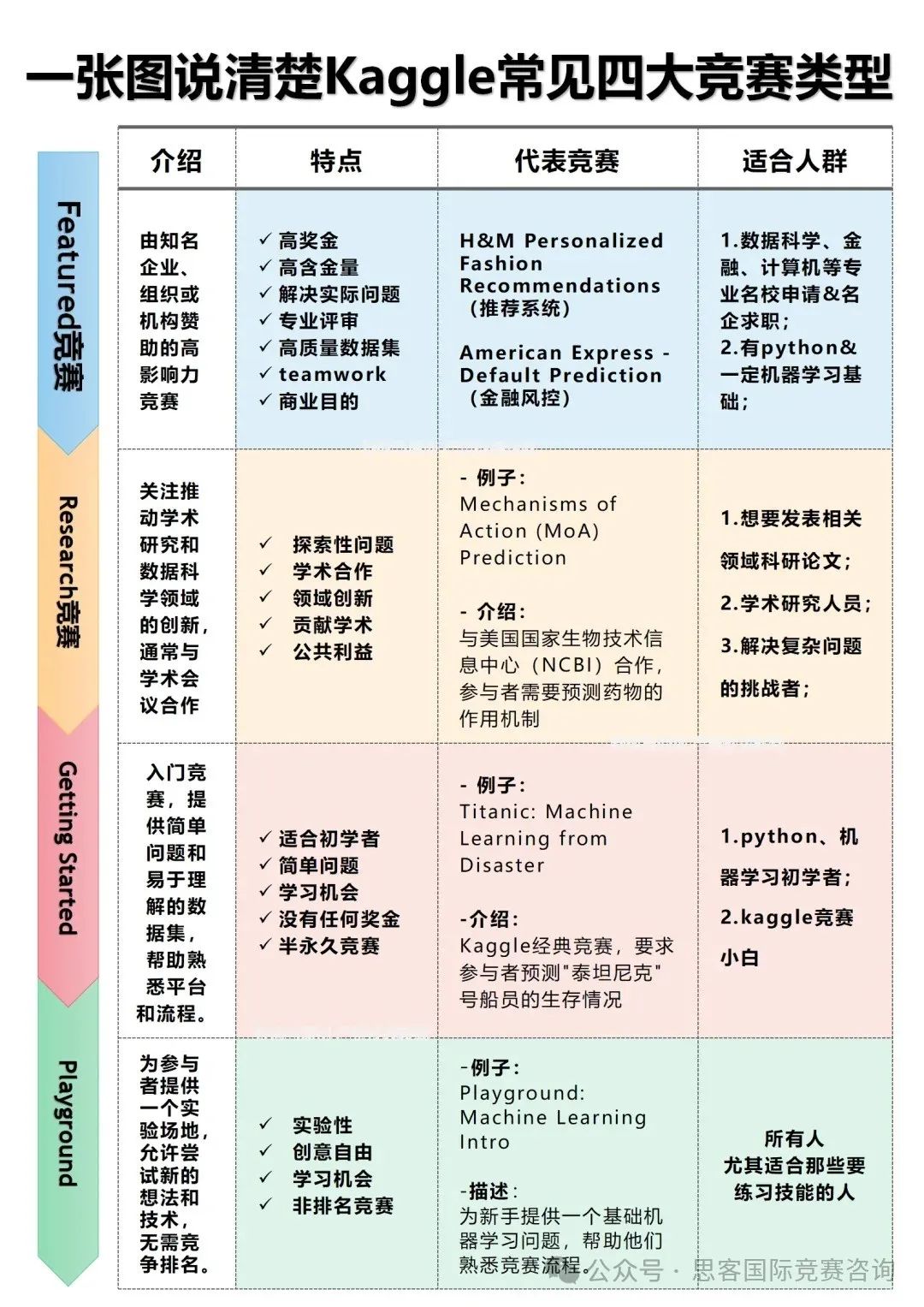冬季首赛后
今天我们为大家再次更新
冬季辩题Sample Case
接下来还有
海外名校邀请赛和NHSDLC冬季线上邀请赛
等着大家去挑战!选手们备赛加油!
近年来,随着环境问题逐日严峻,大家对于环保问题也愈发关注起来。而在诸多环保问题中,是否应该使用塑料制品——尤其是一次性的塑料制品——成为了争论不休的重要议题。一方面,塑料制品的确能够为人类生活带来不可替代的便利性,另一方面为了地球环境的可持续发展,我们又必须对塑料制品的应用加以限制。
本次更新的Sample Case依然是从正反双方提供视角和思路,希望大家能够从中得到一些启发,打开备赛思路。
接下来,让我们一起看看 今天Sample Case的具体内容吧~
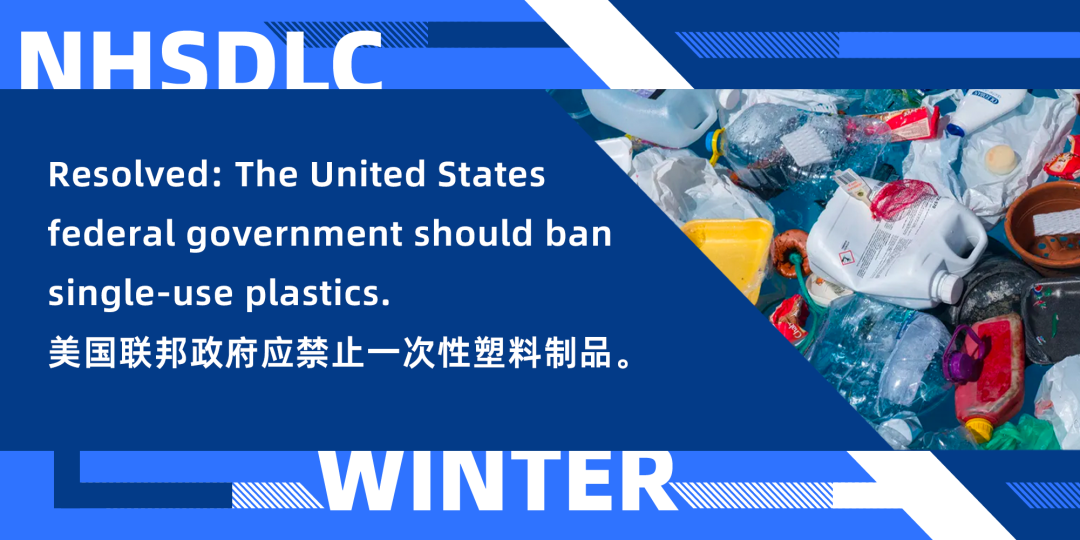
Sample Case
PRO
We affirm: Resolved: The United States federal government should ban single-use plastics. To begin, single use plastics are defined by Smith in 2023 as: “Plastic items that are discarded after only being used once or for a short period of time.”1
Contention 1 - Micro Plastics
Subpoint A - Links First, the McKinsey Group in 2019 calculated that single use plastics used for food packaging in the US creates 16 million tons of waste every year and is expected to grow to 20-22 million tons a year by 2040.2 Second, this results in micro and nano plastics. Lewis in 2023 demonstrated that plastics breakdown into tiny fragments.3 Research from Kyushu University estimated there are 24.4 trillion microplastics in oceans.4 According to the UN Environment Programme in 2021, microplastics on land are four to twenty-three times higher than at sea.5
Subpoint B - Impacts First, human health. Katz in 2019 argued that Americans are consuming about 121,000 microplastic particles a year. This is a conservative estimate.6 Earth Day in 2023 found that microplastics enter the blood stream and stay there until death. They have also been linked to cancer, lung disease, and birth defects.7 Carrington in 2021 warned that microplastics cause cell death and have been found in the placentas of unborn babies.8 Our impact is intergenerational and effects future generations- proves we outweigh on magnitude.
Second, soil. Bodor et. Al. in 2024 stated the overall impact on microplastics on soil is negative.9 The UNEP in 2021 also said microplastics decrease species below the soil’s surface like mites and larvae among others that maintain soil fertility.10 Data from the US Department of Agriculture in 2023 said there are 2,002,700 farms in the US.11 Additionally, the American Farm Bureau Federation said that one US farm feeds 166 people annually in the US and abroad.12 Therefore, US farms feed around 332 million people each year.
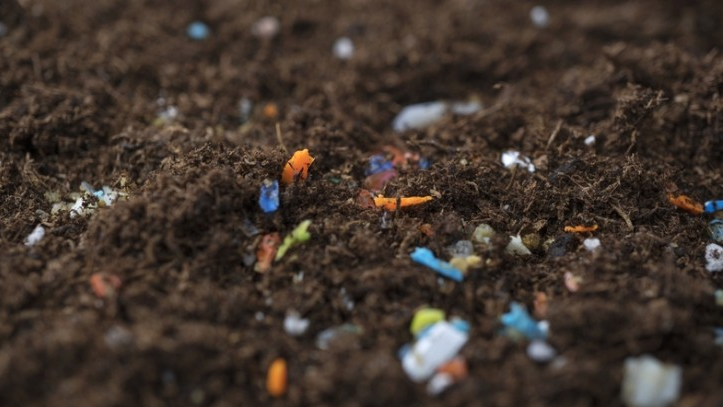
Contention 2 - Oceans
Subpoint A – Links First, Parker in 2020 proved “the US is by far the world’s largest generator of plastic waste.” 13 According to a study from Science Advances in 2020, the US ranks third in coastal plastic pollution.14 Second, McKnight in 2021 mentioned that single use plastics include fishing nets that are killing between 0.97 to 2.7 billion fish a year and are the largest source of plastics in the ocean.15
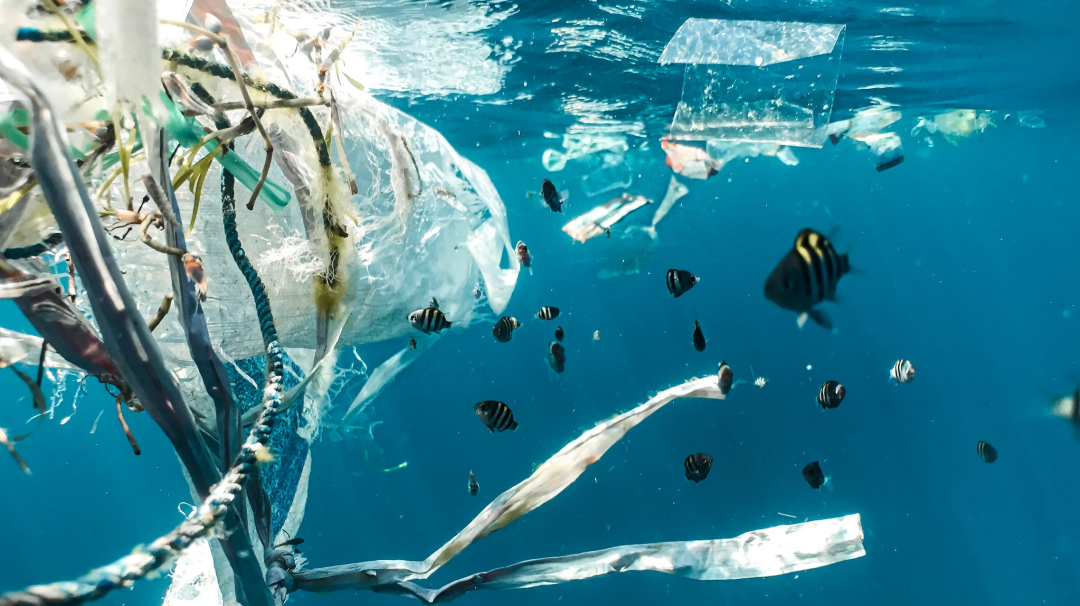
Subpoint B – Impacts First, fishing. Mosquera in 2019 said 700 marine species are threatened by plastic pollution every day.16 According to the American Fishing and Tackle Company in 2021, microplastics bioaccumulate in fish, threatening the fishing industry around the world.17 Bene et. Al. in 2015 found that fish are the largest source of animal protein for 4.3 billion people in the world.18 Second, coral reefs. Mosquera also stated that plastic pollution damage coral reefs, increasing the risk of infections up to 85%.19 Finally, Arsenault in 2016 argued that coral reefs are vital to the health of oceans since they provide food and shelter for 25% of all fish. Oceans provide half the world’s oxygen and absorb 30% of carbon dioxide, so coral reefs are “critical to human survival.”20
Works Cited
1.Smith; 2023 (Brad; The Vanella Group; “The environmental and health impacts of single-use plastics and what we can do to reduce their use”; https://www.vanellagroupmn.com/the-environmental-and-health-impacts-of-single-use-plastics-and-what-we-can-do-to-reduce-their-use#:~:text=Harmful%20chemicals%20like%20bisphenol%20A,asthma%2C%20and%20breast%20cancer%20risks.)
2.McKinsey Group; 12/20/2019; “Accelerating plastic recovery in the United States”; https://www.mckinsey.com/industries/chemicals/our-insights/accelerating-plastic-recovery-in-the-united-states
3.Sophie Lewis, September 15, 2023, https://www.seasidesustainability.org/post/why-plastic-bag-bans-work, Why Plastic Bag Bans Work
4.Laura Parker; April 26, 2022; National Geographic; “Microplastics are in our bodies. How much do they harm us?”; https://www.nationalgeographic.co.uk/environment-and-conservation/2022/04/microplastics-are-in-our-bodies-how-much-do-they-harm-us
5.UN Environmental Programme; December 22, 2021; “Plastic planet: How tiny plastic particles are polluting our soil”; https://www.unep.org/news-and-stories/story/plastic-planet-how-tiny-plastic-particles-are-polluting-our-soil
6.Brigit Katz; June 6, 2019; Smithsonian Magazine; “Americans may be ingesting thousands of microplastics every year”; https://www.smithsonianmag.com/smart-news/americans-may-be-ingesting-thousands-microplastics-every-year-180972370/
7.Earth Day, July, 19, 2023, https://www.earthday.org/what-you-need-to-know-about-the-impact-of-plastics-on-human-health/, WHAT YOU NEED TO KNOW ABOUT THE IMPACT OF PLASTICS ON HUMAN HEALTH
8.Damian Carrington; December 8, 2021; The Guardian; “Microplastics cause damage to human cells, study shows”; https://www.theguardian.com/environment/2021/dec/08/microplastics-damage-human-cells-study-plastic
9.Bodor. Et. Al.; 2024 (Attila Bodor, Gábor Feigl, Bálint Kolossa, Enikő Mészáros, Krisztián Laczi, Etelka Kovács, Katalin Perei, & Gábor Rákhely; Ecotoxicology and Environmental Safety; Vol 269; January 1; https://www.sciencedirect.com/science/article/pii/S0147651323013118)
10.UN Environmental Programme; December 22, 2021; “Plastic planet: How tiny plastic particles are polluting our soil”; https://www.unep.org/news-and-stories/story/plastic-planet-how-tiny-plastic-particles-are-polluting-our-soil
11.US Department of Agriculture; February 17, 2023; “Farms and land in farms”; https://data.nass.usda.gov/economics/farms-and-land-in-farms/
12.The American Farm Bureau Federation; “Fast facts about agriculture and food”; https://www.fb.org/newsroom/fast-facts
13.Laura Parker; October 31, 2020; National Geographic; “US generates more plastic trash than any other nation, report finds”; https://www.nationalgeographic.com/environment/article/us-plastic-pollution
14.Ocean Conservancy; October 30, 2020; Eureka Alert; “New study reveals United States a top source of plastic pollution in coastal environments”; https://www.eurekalert.org/news-releases/821134
15.McKnight; 2021 (Karleigh; The Palm Beach Post; “Do your part to save ocean life”; https://www.palmbeachpost.com/story/opinion/2021/09/30/commentary-overfishing-commercial-net-fishing-plastics-destroying-ocean-life/5903359001/)
16.Mosquera, JD Candidate @ Berry University; 2019 (Marcela Romero; Environmental and Earth Law Journal; Vol. 9; “Banning plastic straws: The beginning of the war against plastic straws”; https://lawpublications.barry.edu/cgi/viewcontent.cgi?article=1075&context=ejejj)
17.American Fishing and Tackle Company; 2021 (AFTCO; “How ocean plastic pollution impacts our fishing heritage”; https://www.aftco.com/blogs/conservation/how-ocean-plastics-impact-fishing-and-fisheries)
18.Bene, et. Al.; 2015(Christophe Bene, Manuel Barange, Rohana Subasinghe, Per Pinstrup-Andersen, Gorka Merino, Gro-Ingunn Hemre, & Meryl Williams; Food Security; Vol 7; March 10; “Fedding 9 billion by 2050- Putting fish back on the menu”; https://link.springer.com/article/10.1007/s12571-015-0427-z#:~:text=Fish%20as%20the%20largest%20source%20of%20animal%20protein&text=Today%20capture%20fisheries%20and%20aquaculture,capita%20intake%20(HLPE%202014).)
19.Mosquera, JD Candidate @ Berry University; 2019 (Marcela Romero; Environmental and Earth Law Journal; Vol. 9; “Banning plastic straws: The beginning of the war against plastic straws”; https://lawpublications.barry.edu/cgi/viewcontent.cgi?article=1075&context=ejejj)
20.Arsenault 16[Kimberly Arsenault, 6/30/16, “Coral Bleaching: What is it and Why Does it Matter?” Emergency and Disaster Management (EDM) Digest, http://edmdigest.com/news/coral-bleaching-what-is-it-and-why-does-it-matter/]
Sample Case
CON
Our framework is cost benefit analysis.
Contention 1- Masks
Vandiver 2022 states that “surgical masks and respirator masks are single use plastics.”
Konda 2020 reports that after comparing the filtration efficiency of 19 common fabrics on particles greater than 300 nanometers in width, the only fabric samples that achieved a filtration efficiency of greater than 99.5% all contained significant amounts of plastic.
Therefore, banning single use plastics would ban surgical and respirator masks with no effective replacement. But masks are critical to preventing the spread of diseases. A study by the National Institute of Health in 2022 finds “Wearing masks was associated with a reduced risk of infection from all respiratory viruses. Only wearing N95 or equivalent masks was associated with a decreased risk infection from all coronaviruses.”
The first impact is human suffering. For example, with the Black Death, the European population was devastated and took hundreds of years to recover according to Price 2020.
The second impact is extinction. Supriya argues in 2021 that pathogens can pave the way for large-scale destruction of humans and even our extinction.
Diamandis 2022 explains that there is unequivocal evidence that pandemics could strike us in the near future and threaten the existence of the human race.
Risk Frontiers ranks natural pandemic as one of the most likely causes of extinction.
Contention 2 - Bioplastics
Kim et al. 2023 define them as plastics capable of breaking down into water, biomass, and small gases. According to CBS News in 2022, companies have invested billions in developing fully biodegradable plastics. Morgan Stanley's indicates a tenfold increase in worldwide bioplastic production capacity, surpassing two million metric tons.
Biodegradable plastics offer a practical and economically viable substitute for traditional plastics, effectively addressing environmental concerns. Valderrama 2019 describes production costs at scale, ranging from €1-2/kg. With a compound annual growth rate of 21.3% for the size of the global biodegradable plastics market according to Market and Markets, increasing environmental awareness, and decreasing production costs, biodegradable plastics are bound to replace harmful plastics soon.
Bioplastics solve microplastics. Sciscione et. Al. in 2023 demonstrated that polyolefin bioplastics biodegrade “without forming microplastics.” Acharjee et al in 2023 argued that “Bioplastics can help solve environmental issues such as unregulated garbage dumping on land and disposal into the sea, as well as the hazardous compounds released as a result…bioplastic production would reduce fossil fuel consumption, co2 emissions, and plastic waste generation…”
Contention 3 - Agriculture
In agriculture, plastic films play a crucial role. As Valderrama highlights in 2019, these films are extensively employed in various applications, including greenhouses, silage covers, and mulching. They fulfill essential functions in insect and weed control, elevate air and soil temperatures, and contribute to the reduction of soil erosion and minimized water evaporation.
Banning single-use plastics would impede the use of plastic films in agriculture. A study by Xiao et al. found that plastic film mulching significantly increases crop yield by 39.5% and water use efficiency by 37.9%. Therefore removing plastic mulching films would result in a substantial decrease in crop yield, approximately 28%, posing a significant impact on food supply.
Works Cited
https://grist.org/fix/opinion/disposable-plastic-masks-ocean-pollution/
https://pubs.acs.org/doi/10.1021/acsnano.0c03252
https://pubmed.ncbi.nlm.nih.gov/32473312/
https://hosted.lib.uiowa.edu/histmed/plague/#:~:text=Half%20of%20Paris's%20population%20of,for%20Europe's%20population%20to%20recover.
https://www.news-medical.net/news/20210419/Humans-versus-viruses-Can-we-avoid-extinction-in-near-future.aspx
https://www.ncbi.nlm.nih.gov/pmc/articles/PMC8802343/
https://riskfrontiers.com/insights/ranking-of-potential-causes-of-human-extinction/





